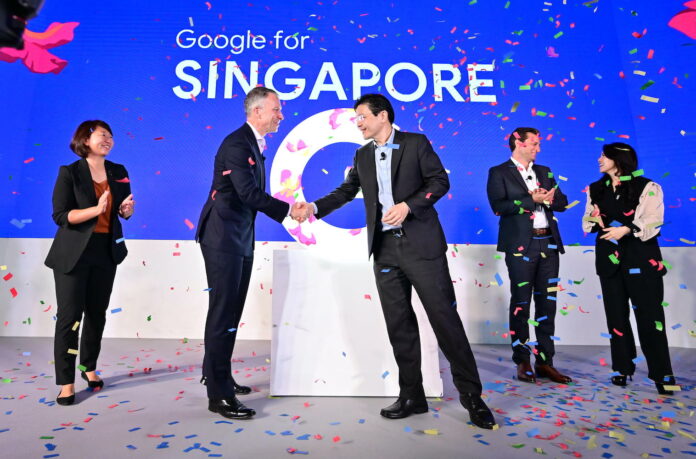Singapore’s Smart Nation and Digital Government Group (SNDGG) and Google Cloud are collaborating to strengthen cooperation on artificial intelligence, through what is the first public-private AI partnership of the National AI Office with a global technology company.
The partners recently signed a memorandum of understanding, which outlines three specific areas of collaboration, including on applied research and development (R&D). Google Cloud and Alphabet’s subsidiaries will work closely with SNDGG’s National AI Office and other government agencies to co-create, test-bed, and scale AI solutions in key sectors like finance, sustainability, and healthcare.
On competency and capability development, Google Cloud will provide dedicated training resources and certification programs to cultivate deep AI and machine learning proficiency for identified public sector officers.
These programs reinforce Google Cloud’s commitment to bridging the AI talent gap, and will build on Google’s Skills Ignition SG training program in partnership with SkillsFuture Singapore (SSG) and Singapore’s Infocomm Media Development Authority (IMDA).
They will also complement Google Cloud’s contribution to the recent collaboration between AI Singapore (AISG) and Singapore’s Ministry of Education (MOE) to give local students a headstart in pursuing STEM careers.
On AI governance and ethics, Google Cloud will support the Singapore government’s efforts to shape AI governance and ethics in key sectors like finance.
These efforts complement Google’s involvement in Singapore’s Advisory Council of the Ethical Use of AI, and its contributions to the Implementation and Self-Assessment Guide for Organizations and Model AI Governance Framework. Together, these efforts will help to manage new forms of risks that will emerge as AI becomes more pervasive.
“Through this public-private collaboration in the field of AI, we aim to advance the technology’s ability to deliver greater societal benefit in areas like financial inclusion, carbon footprint reduction, and personalised healthcare, while ensuring equity, privacy, transparency, and accountability,” said Sherie Ng, Google Cloud’s country director in Singapore and Malaysia.
Through its Skills Ignition SG (SISG) program launched in 2020 with the Singapore government, more than 5,500 people have learned new skills and earned certification. Many have also secured opportunities with local and global companies — Google included, with three in every four of the previous SISG cohort finding jobs within six months of their graduation.
As part of the evolution of SISG, Google shared three key updates to the program. First, is the enhanced traineeship program to 60 Singaporeans to meet current industry demands.
Selected trainees will undergo a 12-month full-time training program in Digital Marketing or Professional Cloud Architecture, up from the previous duration of nine months.
With continuous partnership with IMDA under the TechSkills Accelerator (TeSA) initiative, selected trainees will receive mentorship from Google employees, a more comprehensive development plan, and a higher stipend to match the rising market rates.
Second, a fifth certificate — Digital Marketing and e-commerce — will be added to Google Career Certificates to provide Singaporeans to help learners acquire new skills outside traditional learning environments.
And third, expanded employer consortium to provide SISG graduates direct access to job opportunities. Google previously gathered 16 local companies to form the Employer Consortium to consider recruiting SISG graduates in January.
Today, the employer consortium has now more than doubled to 37 companies. The Monetary Authority of Singapore has also supported this effort by helping to reach out to a broad range of financial institutions.
These initiatives are part of a wide range of endeavor with the Singapore government, which were announced in August at the first-ever “Google for Singapore event,” graced by Deputy Prime Minister and Minister for Finance, Lawrence Wong.
















